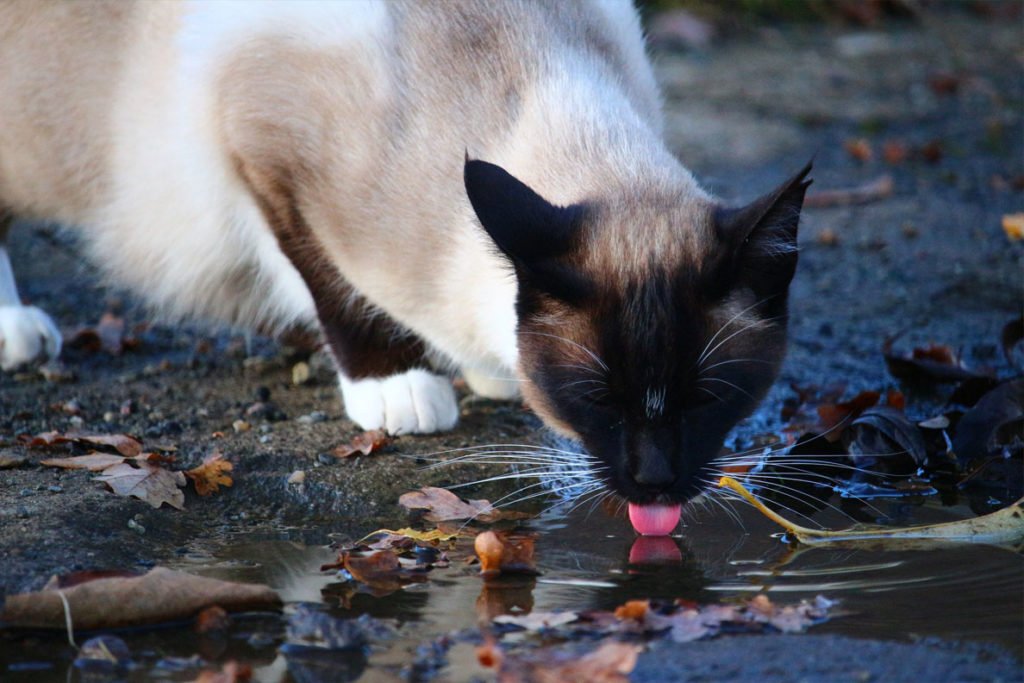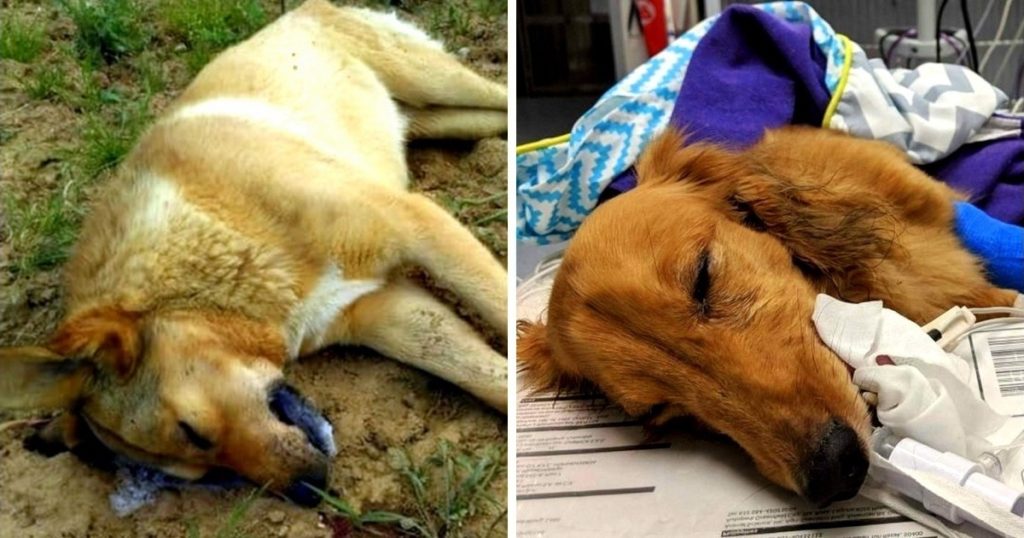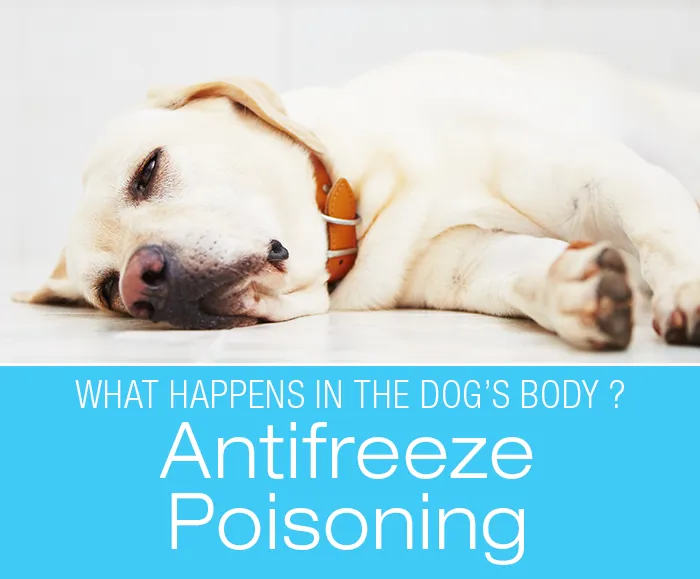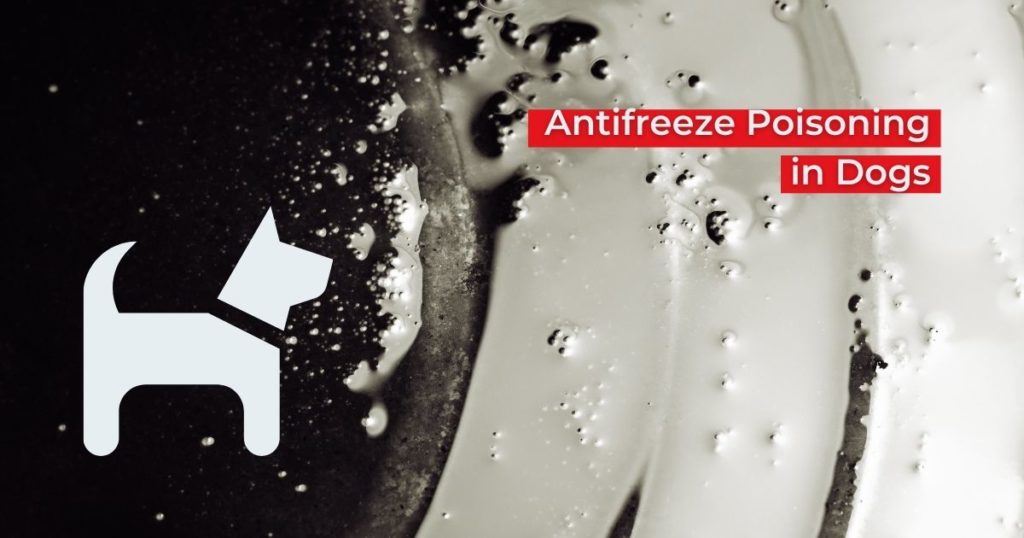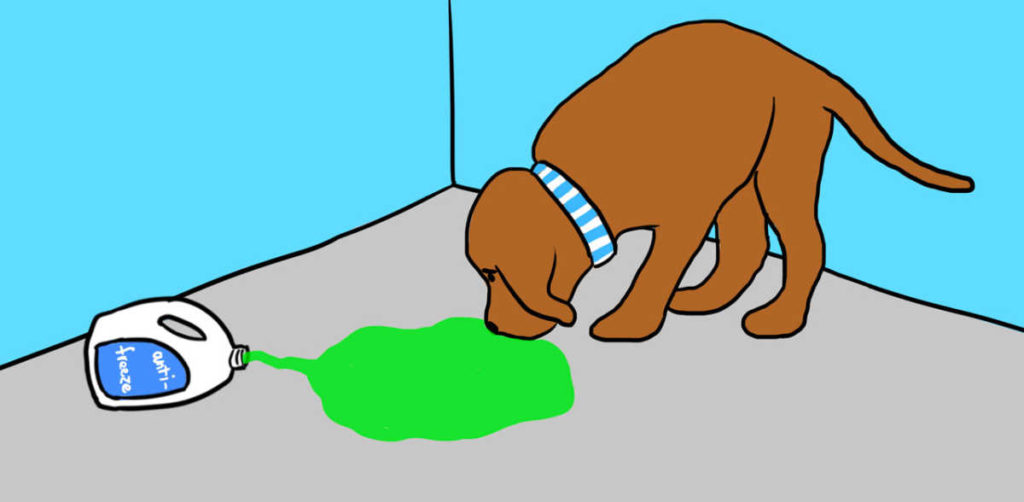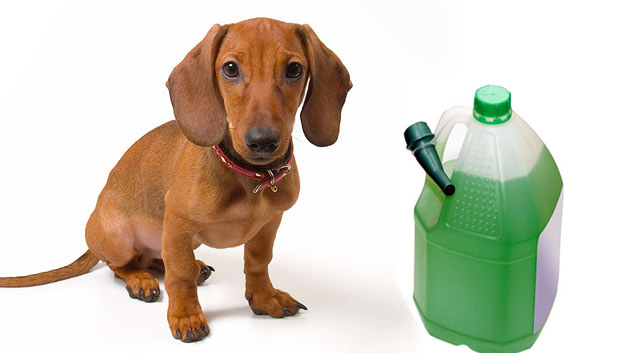Antifreeze in cats commonly comes into contact with cats when it seeps into the ground from a car’s engine, when it is spilled onto the ground while being applied to a car’s engine, or when the container is left uncapped. If your cat ingests antifreeze, which is formed of ethylene glycol, it can be fatal. In fact, a cat can be killed with as little as one-eighth of a teaspoon of antifreeze per pound of body weight.
Ethylene glycol poisoning is a potentially lethal condition that occurs when ethylene glycol, an organic molecule found in antifreeze, is consumed. Antifreeze in cats generally comes into touch with cats when it drips onto the ground from a car’s engine.
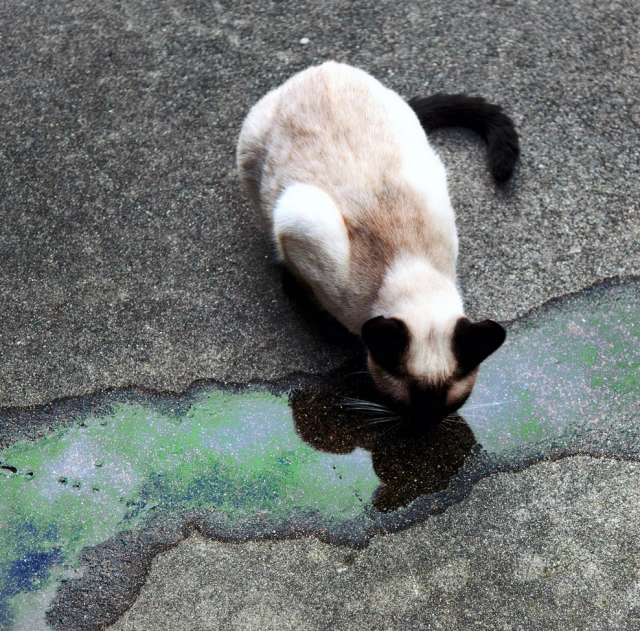
Antifreeze is easily identified by its brilliant green color and sweet flavor. Even if it leaves an unpleasant aftertaste, it may be too late by then. The brain, kidneys, and liver, for example, can be severely poisoned by even little doses. Antifreeze in cats poisoning is a significant problem that occurs more frequently than you might expect. Antifreeze spilled just piques a cat’s interest, which leads to a sample of the sweet-smelling substance.
Causes of Antifreeze in cats
Antifreeze-drinking cats may be interested, thirsty, or find something appealing about the substance’s color, scent, or taste. Humans and dogs are both at risk from antifreeze, but cats are more vulnerable than many other animals. Ethylene glycol is the problem in automobile antifreeze, whether it’s in radiator coolant or deicing windshield wiper fluid.
Symptoms of Antifreeze
Antifreeze in cats poisoning symptoms can appear 30 minutes after they’ve consumed it. You may not detect signs of renal failure for two or three days.
- Vomiting
- Depression
- Sleepiness
- Appearing inebriated and uncoordinated
- Seizures
- Difficulty breathing
- Slightly low body temperature
- Severe sluggishness (lethargy) or coma
- Anorexia (lack of appetite)
- Mouth ulcers/sores
- Salivation or drooling
- Kidneys in cats are frequently bloated and uncomfortable
Diagnosis
For diagnosis of antifreeze in cats, you should take a sample of your cat’s vomit or feces to give to your veterinarian if he or she is vomiting or has diarrhea. If supportive therapy is offered immediately, the diagnosis might be made considerably sooner, saving time and perhaps averting full organ shutdown.
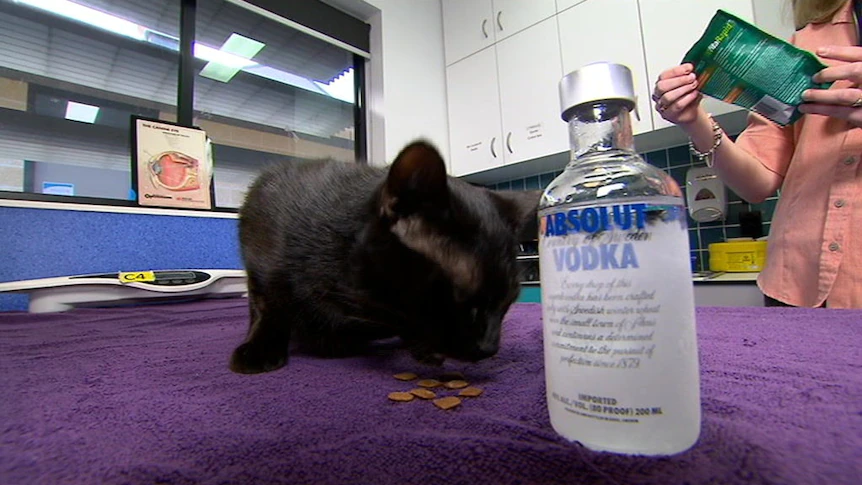
You’ll need to give your veterinarian a medical history as well as as much information as possible about the beginning of symptoms. A urinalysis and a full blood test are standard procedures that will be submitted to a lab for examination right away. Ultrasound may be used by your veterinarian to examine the liver and kidneys, which are frequently enlarged in reaction to ethylene glycol intake.
Following consumption of anything containing ethylene glycol, it’s critical that you take your cat to a veterinarian as soon as possible. Even if you simply believe your cat has consumed ethylene glycol, take them to the doctor if they are exhibiting any or all of the symptoms of ethylene glycol poisoning and the material is accessible in any manner. Ultrasonography is also a viable option. Renal cortices that are hyperechoic as a result of crystals might be discovered.
Treatment of antifreeze in cats
It’s possible that your veterinary clinic will induce vomiting if vets believe, or if pet owners can confirm, that a cat has taken antifreeze. They may next use an IV tube to provide medicine that prevents your cat’s kidneys from further metabolizing the toxin.

Because cats frequently receive different alcohol as part of their treatment to help counteract the ethylene glycol, they might become exceedingly “drunk” and require hospitalization for monitoring at the clinic throughout treatment.
We can occasionally make the kidneys healthy again if it’s too late and the cat has already digested the antifreeze, but there may be lasting harm. Cats with kidney impairment can live a long time, depending on how serious it is and what caused it. Antifreeze in cats poisoning is a serious condition.
Prevention
You should be aware of the danger of ethylene glycol-containing antifreeze as a pet owner and take care to protect your dogs and other animals from potential ethylene glycol sources. Keep ethylene glycol antifreeze out of the reach of curious cats and in areas where bottles can’t topple over onto a counter or the floor.
If antifreeze is spilled, clean it up soon away. If you reside in a cold-weather environment, think twice about using ethylene glycol-based products in water gardens or other outdoor areas where your cat may reach.
RECOMMENDED ARTICLES

